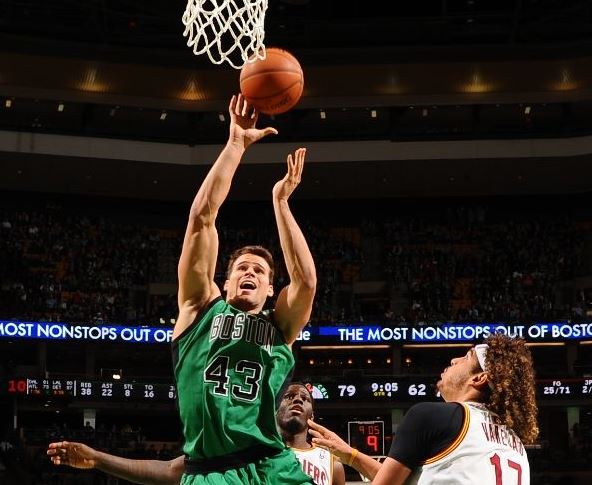Every morning, we compile the links of the day and dump them here… highlighting the big storyline. Because there’s nothing quite as satisfying as a good morning dump.
Through the first 11 games of the season, Boston owned a league-worst defensive rebound percentage of 70.4 percent. At that point, Boston was about to embark on a road trip that featured some imposing opposing front lines (Minnesota, Houston, San Antonio), but managed to start trending in a more positive direction during that three-game stretch.
Over the past nine games, Boston’s defensive rebound rate is 75.7 percent, ranking 12th in the league during that span. That’s helped the Celtics climb from the league’s basement to 25th overall for the season with a season mark of 72.8 percent.
If Boston were to maintain that rebound rate of 75.7 percent from that nine-game stretch, it would rank them near the top 5 in the league overall this season.
…
Faverani’s dip is a product of his downturn in playing time. The two numbers that leap off the page are Sullinger and Bass, the team’s new starting frontcourt combination and the guys logging the most minutes up front. For Bass, whose career defensive rebound percentage is 16.3 percent, the recent leap is super encouraging. That’s been the glaring weakness in his game as an undersized power forward, but he’s finding a way to negate that recently to help Boston’s size-deprived frontcourt.
Sprinkle in the boost Humphries is giving off the bench and you’ve got a team that’s eliminating a lot of the second-chance opportunities that plagued them earlier in the season (and helping Boston shuffle into the top 10 for defensive rating).
While these numbers are encouraging, I’m cautious about long-term sustainability. Brandon Bass has never been anything but an average rebounder. Are we to believe that age 28, he’s suddenly morphed into a monster on the boards?
Kris Humphries’ presence is helping but he’ll be back on the bench once Kelly Olynyk returns from a sprained ankle.
I’m convinced Jared Sullinger will only get better. His impact on the boards will increase as his minutes rise.
Despite the perception, the Celtics did have some excellent defensive rebounding years during the new Big 3 era; 3rd in 2008-09, 8th in 2007-08 and 9th in 2010-11. They never ranked lower than 20th. It was always the absence of offensive rebounding that negatively impacted the overall numbers.
On Page 2, Sullinger remembers what Larry Drew said about him.
“I remember Atlanta in overtime, and Kevin (Garnett) fouled out,” Sullinger said. “I checked into the game. Al Horford kind of had it going, and Larry Drew — he coached the Hawks at the time — pointed down to me and said (to) go at me. Al Horford came down and charged into me twice for fouls.
“I take pride in my defense. Even though some people don’t think I play defense, I do. I love taking that challenge on.”
Sullinger has all of the denigrations memorized — not athletic enough to guard most power forwards . . . not big enough to guard most centers . . . injury prone . . . too short to have a successful post game.
What many overlook, however, is that Sullinger was off to a great rookie start last season before the Celtics shut him down to have back surgery in February. Now that he has shaken off the post-surgical rust and improved his conditioning from the subpar level seen in training camp, an interesting sophomore has emerged.
The man-crush deepens.
The rest of the links:
Globe – Rondo due for check-up | CSNNE – Blakely’s report card | ESPN Boston – Relearning to embrace the win | The season comp: 2006-07 Nets |
Add The Sports Daily to your Google News Feed!

